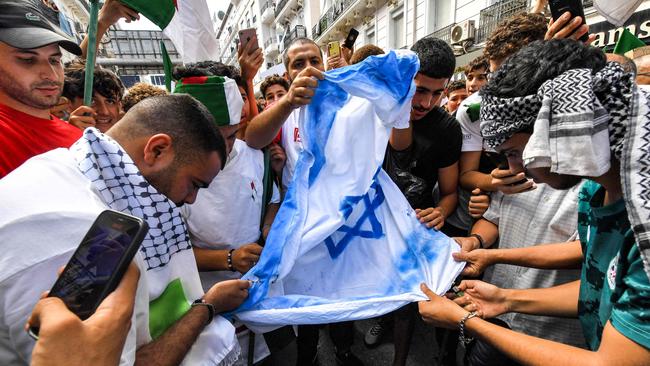
Almost immediately, social media was full of a terrible blood libel, perhaps the most ancient anti-Semitic trope.
Israel had deliberately targeted a hospital. Israel had murdered innocent and helpless men, women and children. It had murdered children, an accusation levelled against Jews for more than 1000 years.
In the main, those people who then went to mainstream online media to get more details of what had happened found almost total unanimity, an implied certainty, that the unbelievable number of deaths and injuries had been caused by an Israeli airstrike.
The headline on the online report of the hospital bombing in The New York Times read: Missile Strike Kills Hundreds at Hospital, Palestinians say. The subhead read: At least 500 dead. Israel urges caution as it investigates.
Most of the newspaper sites as well as the ABC in Australia and the BBC in Britain more or less had the same headlines. All implied that Israel had committed a war crime. Some said that outright – Israel had deliberately targeted the hospital.
On social media, it was not only the partisan keyboard warriors for Palestine that charged Israel with the murder of hundreds of besieged Palestinians. Kenneth Roth, the veteran leader of Human Rights Watch, tweeted and retweeted that Israel had committed this act of barbarity.
Other Democrats in the US, including a member of congress, members of the Democratic Socialists of America, the party that after the Hamas slaughter of more than 1400 people and the taking of 199 hostages declared that Palestinians had the right to resist the occupation and Israel’s apartheid state, tweeted that Israel had murdered the people in the hospital.
No human being with any human feelings, pity and horror at what had happened to innocent people, could fail to be in deep sorrow, rendered speechless by so many deaths of innocents, including babies and children.
But social media does not encourage silent sorrow. It encourages anger and partisanship and hate. And we got that in an unending rush so that if you lived on social media, chances are your rage became volcanic.
What about journalists, reporters, correspondents, what about editors and executive producers and their commitment to ethical journalism?
Rage and pity and partisanship are not – should not be – available to us. That’s the price we pay for the privilege of being journalists, a privilege we earn by a commitment to factual and fair reporting, to a search for truth even if truth remains elusive.
And this means, crucially, being clear about what is known and what is not known, what is contested and what is uncontested.
But an increasing number of journalists – and journalism educators – reject this summary of what constitutes ethical journalism, with its commitment to truth-seeking and fact-seeking and fairness.
This rejection is particularly stark when it comes to the reporting of the long conflict between Israel and the Palestinians.
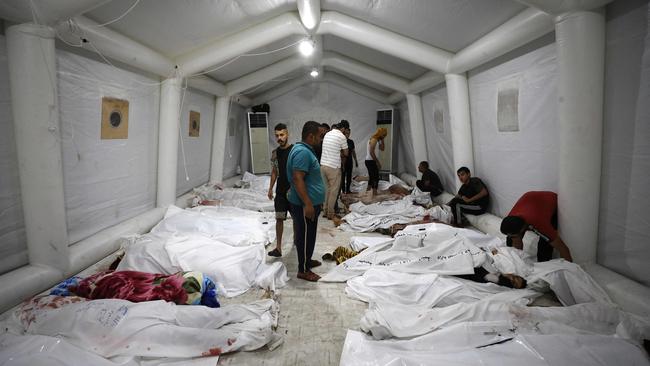
In 2021, hundreds of Australian journalists and workers in publishing signed a letter that urged media companies to change the way they covered the conflict between Israel and the Palestinians. Similar letters were signed by thousands of journalists in the US and in Britain. The letters were organised in the wake of the exchanges of rocket attacks between Hamas and the IDF.
How it started was contested but not for the journalists who signed the letter – it was wholly due to Benjamin Netanyahu’s unprovoked bombing and killing of innocent Palestinians in Gaza. But what did they actually want from the media companies that employed them?
What they wanted was an end to the prioritising of the “same discredited spokespeople and tired narratives” – Zionists, in other words, and people who affirmed Israel’s right to exist. And they called for new voices to be given priority. But which voices exactly?
Palestinian voices, though they did not spell out which Palestinian voices exactly – did it include the voices of Hamas, for instance?
They proclaimed that journalists should be allowed – have the right – to be activists for the Palestinian cause. This right to activism by journalists was endorsed by the journalists union, the Media, Entertainment & Arts Alliance, despite its opposition, in its ethical principles, to journalists as activists. There was hardly any pushback among journalists, publicly at least, over this radical change to the ethical principles that underpinned journalism in a liberal democracy. Well-known media commentators and teachers I contacted agreed that there were issues with the letter, but none spoke up about it.
And so we come to this week and the initial coverage in most of the media of the Israeli strike on the hospital in Gaza and the death of 500 people, the death toll likely to rise, and anger throughout the world at what the Israelis had perpetrated, and the sewer of social media full of the Israeli murder of innocents, children for heaven’s sake, children!
It seemed that the journalists who signed that letter had been granted their wish: Palestinian voices had not only been given preference and the tired and discredited voices ignored, but the Palestinians given preference, given credibility. Quoted as if what they said was fact, were Hamas, the terrorist rulers of Gaza who less than two weeks previously had committed the greatest slaughter of Jews, men, women and children, since 1945.
The hundreds of horror stories published online and in print, the television news programs – with rare exceptions from media that many considered hopelessly Israel-biased – about the bombing, the deaths, Israel’s culpability, were wholly based on statements from Hamas-controlled operatives in Gaza in the immediate aftermath of the explosion at the hospital. Newspapers published commentary from reputable non-government organisations, one from the Australian director of Medicins Sans Frontieres in The Age with the headline: “ ‘This is a massacre’: Basic humanity has to be restored in Gaza.” A massacre is the deliberate killing of defenceless human beings. That was the headline The Age considered appropriate for this piece of commentary, based entirely on the Hamas story of what had taken place, and given prominence on The Age website.
And it was still there, prominently displayed on Thursday when it increasingly was clear that the explosion at the hospital – the carpark of the hospital apparently – was the result of a misfired missile by the terror group Palestinian Islamic Jihad.
This, in my view, is the consequence of preferring some voices and suppressing others and of encouraging journalists to be activists for a cause.
The result is not inconsequential. Hatreds, ancient hatreds, have been stoked. Jews feel under attack, accused of the old and terrifying blood libel that in Jewish history has resulted in pogroms in which many thousands of Jews were slaughtered. I know this because Jews contacted me because I was a journalist and former newspaper editor and they thought I could do something – call editors, journalists, executive producers – to make them feel less threatened.
I am no longer an editor and, in truth, I am no longer a working reporter. I have written a book, just published, about being a Jew, specifically a Jew who grew up in a Jewish left-wing, non-Zionist organisation and who has come to the conclusion that the left he grew up in is no more.
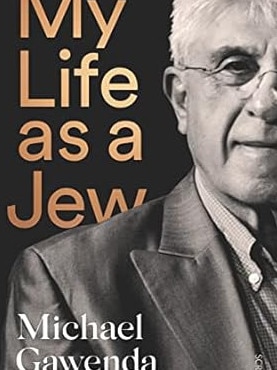
The left is increasingly hostile to Jews like me, left-wing Jews like me. We are no longer welcome in left-wing circles because we are supporters of Israel’s right to exist and reject modern anti-Zionism, which is ultimately about the elimination – peacefully or by force – of Israel, to be replaced with a Palestinian state.
The events of the past two weeks have confirmed, in many shocking ways, what I describe in my book, the way growing parts of the left, including some Jewish pro-Palestinian activists, have come to regard Jews as white supremacists, supporters of colonialism and racism – that is apart from good Jews who are declared anti-Zionists.
And so it was that in the immediate aftermath of the Hamas slaughter of hundreds of Jews – they killed scores of non-Jews as well but their target was Jews – pro-Palestinian rallies were organised around the world, pro-Palestinian rallies of people advocating for the elimination of Israel and that at best justified this slaughter on the basis that it was done by anti-colonialist freedom fighters and at worst celebrated these murders of the colonialist enemy.
At one of these rallies, at the Sydney Opera House, 36 hours after the massacres, there were chants of “Kill the Jews” and “Gas the Jews”. The Melbourne rally had as one of its main speakers a Jewish academic and, I presume, she chanted along with her fellow protesters, “from the river to the sea, Palestine will be free”.
This was 36 hours after the Hamas-inflicted horrors, with their dark echoes of what had been done to the Jews over their long history, most recently not much more than a lifetime ago.
Holocaust survivors, old men and women, witnessed all this, saw the horrors on television and heard from frightened and angry family in Israel and then heard the chants of “Gas the Jews” at that rally at the Opera House.
I think many on the left, including anti-Zionists, were horrified by the Hamas slaughter. I am not saying that the pro-Palestinian protesters and their supporters on social media or the university student groups in Australia and the US and Britain – as well as their academic supporters, their teachers – who celebrated the slaughter, posting videos of their wild celebrations, had the support of most people on the left.
But what they had was a sort of anxious silence. Many leftists, including leftist Jews with whom I had grown up, could not simply and in a straightforward way condemn the Hamas slaughter, say forthrightly that no cause can justify what Hamas had done.
That was true of cowardly university administrators in the US, and of leftists who were shaken by what had happened – many Jews on the left were shaken to their core – but could not bring themselves to say anything that did not obfuscate what had happened, as if doing so would put them in the camp of the Zionist oppressors.
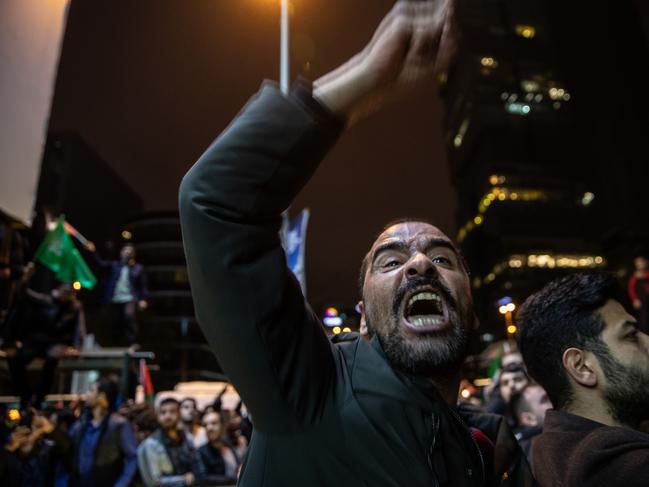
The Australian Centre for Jewish Civilisation based at Monash University is probably Australia’s major – if not only – Jewish tertiary study centre. My children have been involved in Yiddish music projects run by one of its celebrated academics and funded by the centre. On the Monday after the slaughter, the director of the centre, Associate Professor David Slucki, posted this on the ACJC Facebook page: “We at the ACJC are devasted by the escalation of violence in Israel and want to express our deep sorrow for all the lives lost. We are thinking of all our families and hoping for a swift end to the violence.”
In my view, it is a passive, obfuscating statement. It is a dissembling statement in a passive voice – the Hamas slaughter is described as an “escalation of violence” and people were not murdered but rather “lost their lives”. This from a Jewish studies centre whose director could not mention the word Jew in his statement about the biggest pogrom against Jews since the Holocaust.
There was a complaint from a staff member and Slucki agreed to amend the statement, but even in the amended statement he could not bring himself to say forthrightly that Hamas had targeted Jews for slaughter.
Asked about the original post, which for some technical reason could not be taken down, Slucki said that when the staff member had pointed out what was wrong with it, he changed it.
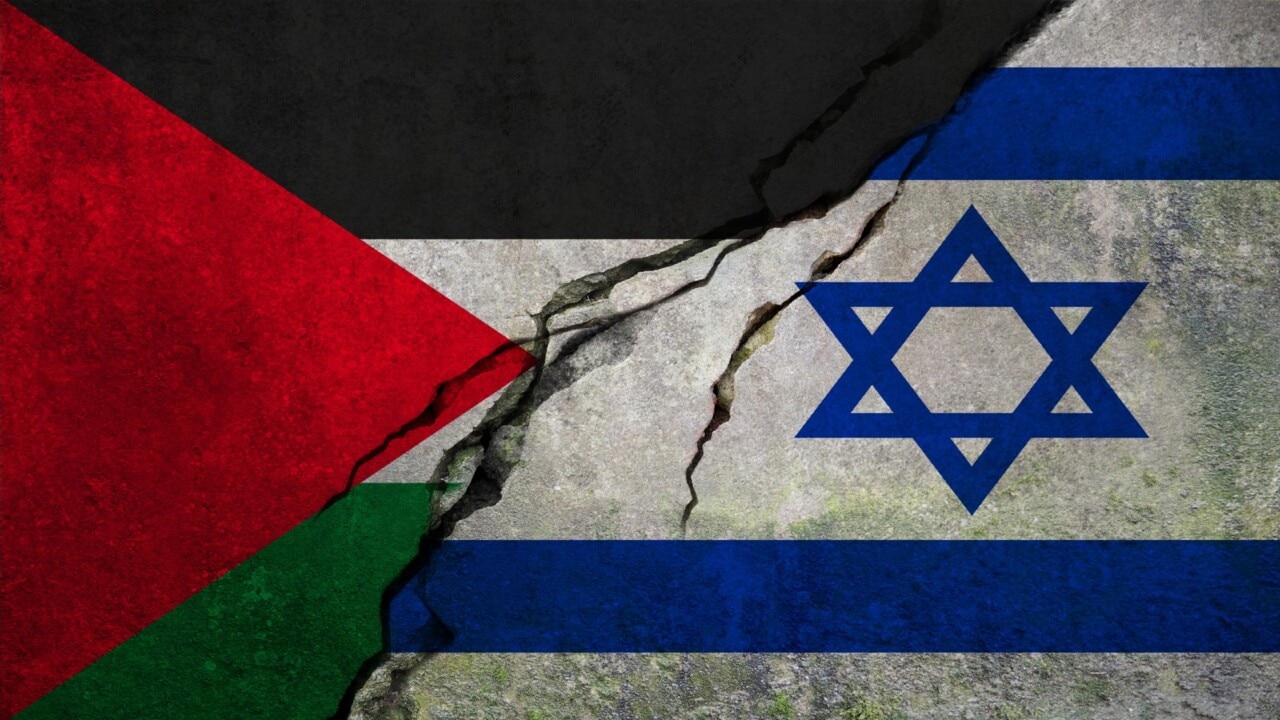
“Even for writers, in times of devastating events that are traumatising for many of us, the right words can be hard to find,” he said. “I guess that’s the takeaway for me.’’
Asked why the amended statement still could not specifically refer to the slaughter of Jews – instead it talked about “barbaric war crimes by Hamas against innocent civilians in Israel” – Slucki said he was not sure why he had not used the word Jew.
The muted response from universities and from leftists, including leftist Jews, to the Hamas slaughter and then the terrible coverage by most media of the explosion at the hospital in Gaza are connected. Jews are not victims. Jews are powerful. They have dominated the media’s coverage of the conflict between Israel and the Palestinians. They need to be silenced.
A slaughter of Jews has a cause rooted in Israel’s oppression of the Palestinians. These are the views that those journalists who signed that letter in 2021 reckon ought to be given preferential treatment. In that case, the mass murder of Jews by Hamas freedom fighters is to be passed over as quickly as possible. And it was forgotten, as if it had never happened, once they could accuse the Israelis of the old blood libel, that they had massacred the innocent men, women and children, murdering them with a deadly missile strike on a hospital in Gaza.
Michael Gawenda is a former editor of The Age. His book My life as a Jew is published by Scribe Publications.




On Wednesday morning, the phones of many thousands of Australians buzzed with a terrible news alert. An Israeli airstrike had hit a hospital in Gaza. Five hundred people were dead. Many more were injured. Sick men, women and children who needed treatment, as well as refugees who had escaped from relentless Israel Defence Forces bombardment to what they prayed was the safety of a hospital, had been killed.